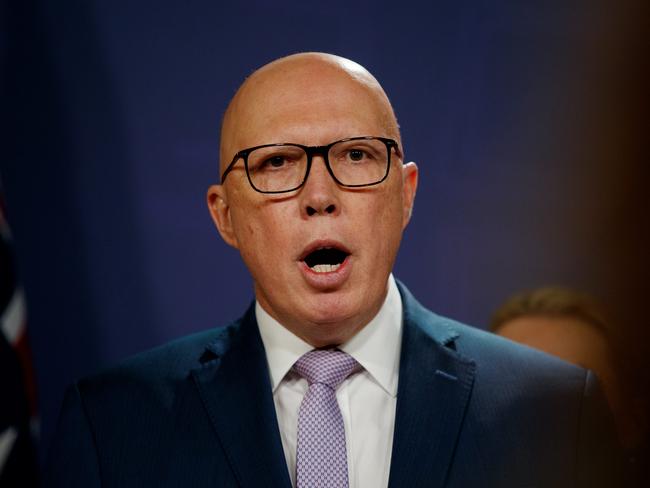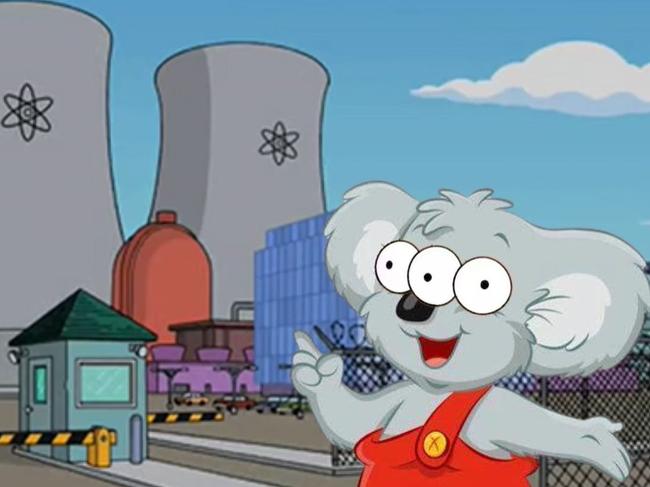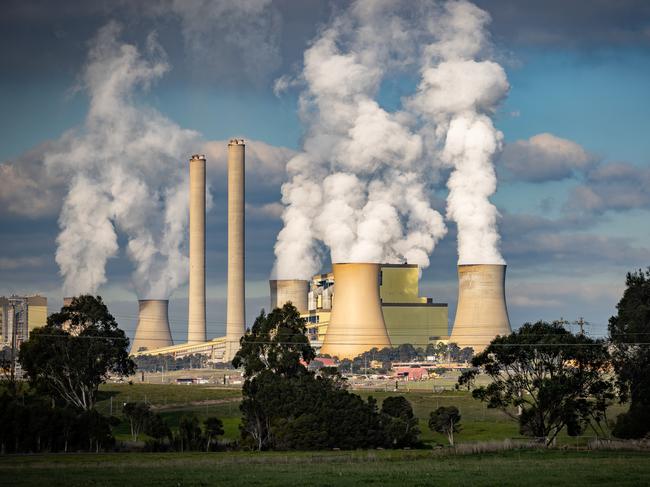Rita Panahi: Peter Dutton’s energy policy could derail the “clean energy” subsidy gravy train
It’s no surprise the renewable rent seekers in the corporate sector are panicking about the prospect of Australia embracing nuclear energy – it could spell the end to what has been a lucrative, guaranteed income stream.
Rita Panahi
Don't miss out on the headlines from Rita Panahi. Followed categories will be added to My News.
No one should be surprised that the renewable rent seekers in the corporate sector are panicking about the prospect of Australia embracing nuclear energy.
That could spell the end to what has been a lucrative, guaranteed income stream subsidised by long-suffering taxpayers and consumers. It is an indictment on successive governments that despite being blessed with the world’s largest uranium reserves, as well as abundant reserves of coal and gas, we have exorbitantly high energy costs that have crippled businesses and caused financial strain on households.
This week opposition leader Peter Dutton announced a nation-transforming energy policy that would see seven nuclear reactors operating across the country by 2050.
The “clean energy” subsidy gravy train could be derailed if the Coalition wins the next federal election with a clear mandate to implement a nuclear strategy.
The mass gaslighting of the Australian population must come to an end.

Renewable advocates claim that it’s the “cheapest form of energy” but the experience locally and internationally proves that to be a bold-faced lie.
We are getting a taste of what other nations that have embraced net zero have endured in recent years; higher costs coupled with reliability/supply issues.
If renewables were the cheapest form of energy China would not be building coal power plants and nuclear reactors at a breakneck pace.
But if the nuclear deniers are to be believed Australia is the only corner of the world that is ill-suited for clean and reliable nuclear energy, never mind that we are sitting on a third of the world’s uranium resources.
In recent days we’ve seen the usual suspects, Labor, the Greens and the activist class along with the rent-seekers indulging in wild hyperbole and disinformation about what is a safe and reliable source of energy in use from Asia to North America to Europe.
Do they really expect us to believe that countries such as France, Sweden, Finland, South Korea, America, Canada, Japan and Belgium, to name just a few, are suffering from some form of psychosis that sees them embrace nuclear electricity.

What nuclear provides is secure, affordable and reliable baseload power that is not dependent on variables like wind and solar, and it gives advanced economies enough supply to meet demand. And it does it with zero emissions.
That is why the renewable sector is deadset against nuclear; there is no need for renewables once you have abundant baseload power that is clean and on-demand. And you can deliver it on the existing grid. That is why you will see increasingly unhinged antics from politicians and activists.
Expect to see more cartoons of three-eyed koalas and fish being posted on social media.
But while the Australian Left indulge in juvenile antics, in the US, the Senate passed a bipartisan bill (88-2 votes) to accelerate the deployment of nuclear energy capacity, with both Democrats and Republicans acknowledging the importance of nuclear energy to America’s future.
Dr Adrian Paterson, an academic and leading expert in nuclear science and technology, wants Australians to make an informed decision.
“Low carbon nuclear electricity provides the cheapest to consumer cost and would transform our electricity grid,” he said on ABC radio.
“It’s fundamentally important for the people of Australia to know that it is an absolute con to suggest that if we had nuclear electricity it would be more expensive.”

Referring to the CSIRO’s flawed GenCost report Dr Paterson said: “The CSIRO has no expertise in the cost of generation and what they do is take publicly available figures usually in countries that have regulatory environments that are designed to stop nuclear. They take those costs and then they convert them to generation cost using an algorithm that is provided to them by a private sector firm that is not an expert in nuclear industry … the report has no reliability.
“My message to the public is you are being conned … wind is only available on average two days out of five, 40 per cent capacity factor, nuclear power plants globally generate more than 93 per cent capacity factor. Reliable always on low carbon electricity is the best ecological objective.”
Of course it also helps that nuclear would stop the natural environment being scarred with solar farms and wind turbines.
Dutton’s nuclear strategy is sound and in the long term interests of the nation but it is also enormously risky politically.
It’s easier to oppose a thoroughly bad idea like the race-based voice referendum than to advocate for a good idea like nuclear energy, particularly when the rewards are not immediate.
We have become accustomed to immediate gratification when the nation is in dire need of long-term strategies to secure energy supply.




